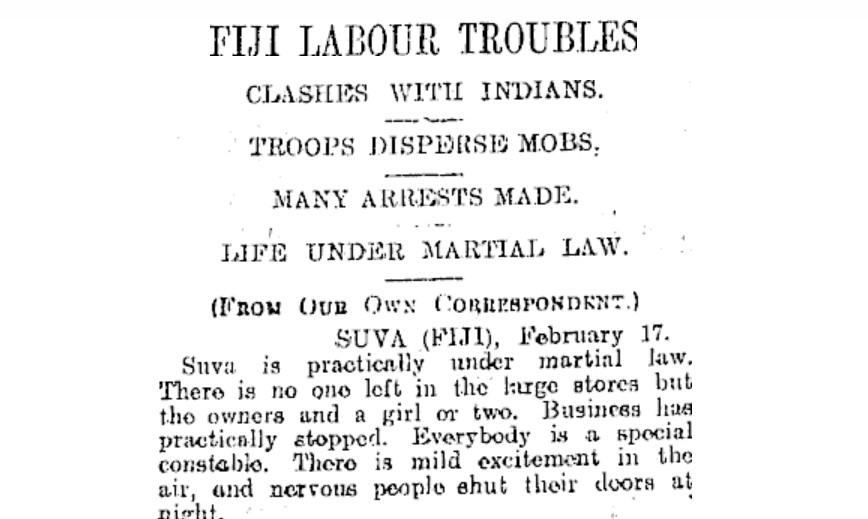“Apparently, I’m a Zionist AND a Nazi” quips Elon Musk, implying that this is an absurd contradiction in terms. After all, surely one stands for Jewish safety and the other calls for Jewish genocide? This superficial reasoning rests on a rotten assumption: that Israel is the natural home of all Jews. This assumption is a core tenet of Zionism (that is, the political project of building a Jewish settler-colonial ethnostate) and has been since its inception. This assumption did not interfere with the German fascism that sought to eradicate its country’s Jews in the name of German national identity, and it does not interfere with the aims of the antisemitic Far Right today. Just as criticism of the state of Israel does not make someone antisemitic, support for Israel does not mean that someone is a friend to the Jewish people.
Far from being inherently at-odds, there are political parallels and historical ties between the national projects of Nazism and Zionism. The former wants to eradicate or export its Jewish population, and the latter wants to import an exclusively Jewish population for its colonial project. While Zionism grew largely in response to the threat of Nazism, the reality is that the history of Zionism has represented a retreat from antisemitism rather than a challenge to it.
The Racist Roots of Zionism
Theodore Herzl, the founder of modern Zionism, was an atheist man who viewed Jews explicitly as a race, rather than the reality: an interconnected cultural ethno-religion that defies comfortable categorisation. He believed that Jews could never live comfortably among peoples of other races, and called for an exclusively Jewish ethnostate to escape racial tension – in Uganda, or Madagascar, or Palestine. The latter was eventually settled on, as it provided a propagandistic opportunity to tether the modern state of ‘Israel’ to the ancient Jewish homeland and myths of the Holy Land.
Herzl traveled the world, discussing Zionism with authoritarian rulers such as German kaiser Wilhelm II and Ottoman sultan Abdul Hamid II. The meetings, like most of his ventures, were failures. Zionism did not prove popular among working class Jews either, among whom liberatory traditions of Jewish socialism, calling for equal rights for Jews wherever they lived, were ascendant. It wasn’t until the racist policies of 1930s Europe and the rise of Nazism that Zionism truly became a driving force in Jewish society.
Long after Herzl’s death, antisemitic fascists were finding value in promoting Herzl’s Zionism. In 1933, the Haavara Agreement between the Nazis and Zionist organisations aided in transferring persecuted German Jews to Mandatory Palestine. In 1934, SS officer baron Leopold von Mildenstein wrote that his time spent with Zionists showed him “the way to curing a centuries-long wound on the body of the world: the Jewish question”.
In May 1935 Reinhardt Heydrich, chief of the SS Security Service, wrote that “the time cannot be far distant when Palestine will again be able to accept its sons who have been lost to it for over a thousand years. Our good wishes together with our official good will go with them”. He said explicitly, “The Nazi government finds itself in complete agreement with the great spiritual movement within Jewry itself, so-called Zionism”.
To be clear, the Nazi position of Zionism was not coherent, nor was it simply an agreement on ethnic nationhood. Their position was riddled with pure hatred for Jews, ideas of Aryan supremacy, and conspiracist nonsense. Hitler himself claimed that Zionists were merely seeking “a central organisation for their international swindle”- disgusting antisemitic rhetoric not unlike that which can be found on Musk’s X today. Despite these contradictions, the dual racism of German fascists and Zionists found common ground in this period that helped to facilitate the Nazis sending as many of Germany’s Jews as possible to Palestine.
Anti-Semitism: A Persistent Poison
Others have offered a more grounded and less fatalistic analysis of antisemitic oppression. In the 1940s, Jewish Marxist Abram Leon – working from Nazi-occupied Belgium – provided an analysis that rooted the development of antisemitism in the unique position that Jewish people have historically occupied as a “people-class”.
Many ethnic and religious groups have historically shared the land we now call Palestine in relative peace over the last three millenia. It is posited that a large diaspora of Jewish people took place around the 7th century BC, and other exoduses followed due to territorial conflicts. For the Jewish people, their diaspora took on an economic component – generally, they spread to other nations establishing trade and commerce networks throughout the Middle East and especially towards Europe.
Throughout this period in Europe, there were generally laws dictating what work a Christian was allowed to do versus what a Jew was allowed to do, and Jewish commerce transformed according to what the ruling classes permitted. Their commercial activities crystallised into money-lending that incurred interest, a practice legally barred to Christians. In pre-capitalist European society, there were no banks as we think of them today. Jews lay outside of the general system of production as a separate system of capital to be lent to royalty or nobility. Jews were the banks – their survival as a people depended on what became a tradition of commerce. Throughout the Roman Empire this was a privileged and protected position. However, this was not always the case.
After the fall of Rome, Jewish money-lenders were, first and foremost, owned as property by royalty and nobility. These ruling classes would borrow massive swaths of “capital” from Jewish money-lenders, but when production failed to serve the people, perhaps because of war or droughts, royalty and nobility would point to the money-lenders: “do not blame me, I want to serve you, but I must pay back my creditors!” Often this led to banishment of Jewish families, or outright slaughter, which would allow the ruling classes to cancel their debts. In many cases across feudal Europe, there was a cycle of Jewish banishment, then debt cancellation or capital accumulation, then welcoming Jewish folk back into their land (for a fee) when the land was more prosperous. The ruling classes used Jewishness as a lightning rod for class discontent, redirecting frustration away from themselves. This history of Jews as a distinct people-class, facing waves of oppression, slaughter and hostile propaganda lays the foundation of anti-Semitism.
Today, Jewish people are assimilated into capitalist class society, as much as any other ethnic or religious group. They are also part of the working class. To target Jews with bigotry is not only morally repugnant, but politically it divides the working class. On the question of anti-Jewish bigotry, Russian revolutionary Lenin summarised an articulate position:
It is not the Jews who are the enemies of the toilers. The enemies of the workers are the capitalists of all lands. Among the Jews there are workers, toilers they are in the majority. They [Jewish workers] are our brothers, comrades in the struggle for Socialism, because they are oppressed by capitalism. Among the Jews there are kulaks, exploiters and capitalists, just as there are among the Russians, and among people of all nations.
Our Role: Fight Anti-Semitism, Fight Israel
With the rise of the Far Right globally, and the escalation of Israeli aggression in the Middle East, it is crucial that we fight both antisemitism and Zionism as twin forces threatening solidarity between Jewish and non-Jewish workers worldwide.
When Far Right figures like Musk take up the cause of Zionism, we must be clear that this is part of a wider political project that is based on bigotry and is actively harmful towards Jewish people. By the same token, we must reject conflations of Judaism with Zionism, and insist on the right of people – including anti-Zionist Jews- to vigorously and vocally denounce Israel’s project of apartheid and genocide.
There have always been alternatives to antisemitism and Zionism. One is the vision of the General Jewish Workers’ Union of Lithuania, Poland and Russia, founded in Russia in 1897. Known as the Bund, this socialist party fought for the rights of Jews as Jews in every country, making their slogan “wherever we live, that is our homeland”. For us today, the alternative to both antisemitism and Zionism is solidarity. We must fight for a world where Jewish people can find safety and belonging wherever it is they call home.









